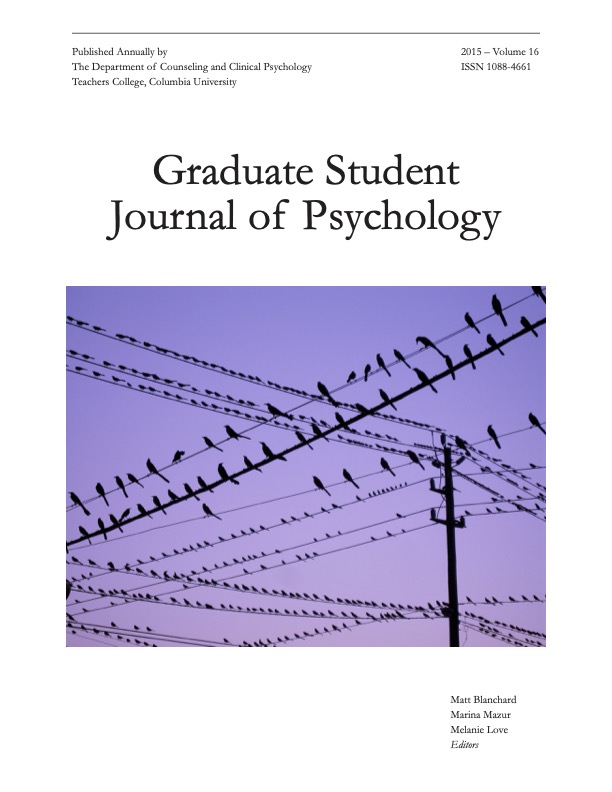An Exploratory Study of Posttraumatic Stress Disorder, Sleep Disturbances, and 63 Executive Functioning in Veterans
Main Article Content
Abstract
Introduction: Hypervigilance, hyperarousal, and sleep disturbances are components in the diagnosis and treatment of Posttraumatic Stress Disorder (PTSD) and other trauma-related diagnoses. The current study explores the relationships between PTSD, sleep, and executive functioning among military veterans.
Method: The Immediate Post-concussion Assessment and Cognitive Testing Battery (ImPACT) is utilized to examine the cognitive performance of 18 veterans. Dependent measures included composite scores of verbal memory, visual memory, processing speed, and reaction time from the ImPACT computerized test battery, as well as total symptom scores from the Clinician Administered PTSD Scale (CAPS), the Pittsburgh Sleep Quality Index, and the Pittsburgh Sleep Quality Index – Addendum for PTSD (PSQI-A).
Results: Veterans showed significant deficits in verbal memory and slower reaction times relative to normative data. The veterans did not differ from the normative group on visual memory and processing speed indices. After adjusting for sleep disturbances, reaction time remained significantly correlated with PTSD symptom severity in veterans.
Conclusions: Executive functioning deficits in verbal memory and reaction time are detectable in veterans who endorse clinical and subthreshold symptoms of PTSD.
Method: The Immediate Post-concussion Assessment and Cognitive Testing Battery (ImPACT) is utilized to examine the cognitive performance of 18 veterans. Dependent measures included composite scores of verbal memory, visual memory, processing speed, and reaction time from the ImPACT computerized test battery, as well as total symptom scores from the Clinician Administered PTSD Scale (CAPS), the Pittsburgh Sleep Quality Index, and the Pittsburgh Sleep Quality Index – Addendum for PTSD (PSQI-A).
Results: Veterans showed significant deficits in verbal memory and slower reaction times relative to normative data. The veterans did not differ from the normative group on visual memory and processing speed indices. After adjusting for sleep disturbances, reaction time remained significantly correlated with PTSD symptom severity in veterans.
Conclusions: Executive functioning deficits in verbal memory and reaction time are detectable in veterans who endorse clinical and subthreshold symptoms of PTSD.
Article Details
Section
Articles

This work is licensed under a Creative Commons Attribution-NonCommercial 4.0 International License.
How to Cite
Edwards, S., Benton, L., Germain, A., & Iaccino, J. (2015). An Exploratory Study of Posttraumatic Stress Disorder, Sleep Disturbances, and 63 Executive Functioning in Veterans. Graduate Student Journal of Psychology, 16, 63–70. https://doi.org/10.52214/gsjp.v16i.10900

